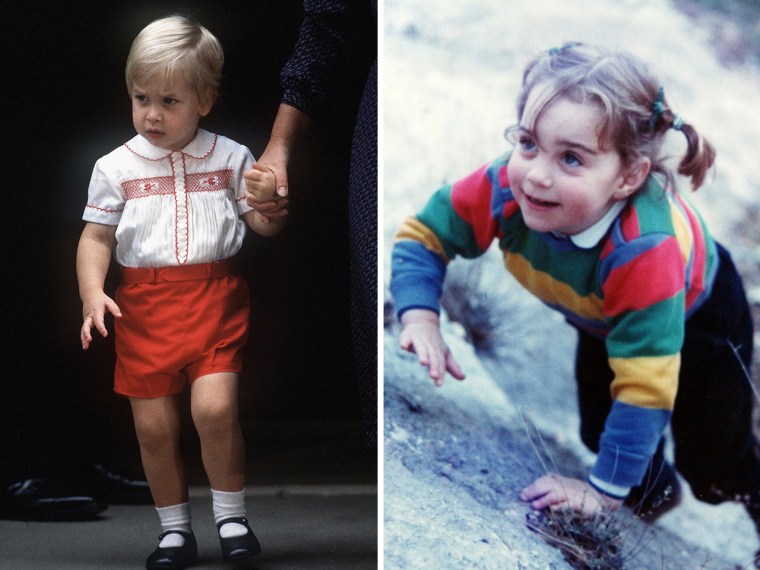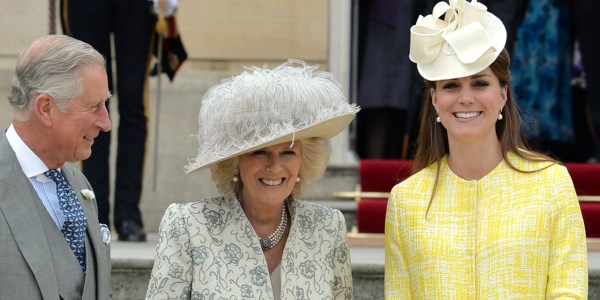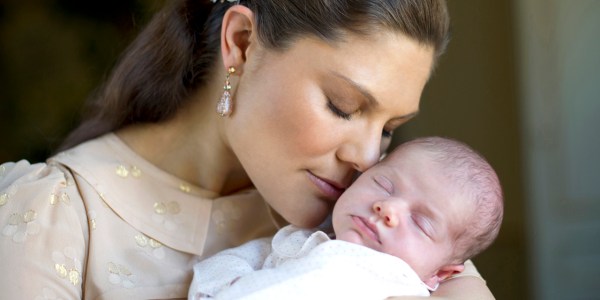Sometime this summer, Duchess Kate will likely pack up her nappy bag, dress her new baby in a body suit, jumper and trousers, tuck it into her new pram and set off for a walk. Along the way the baby may whinge and need its dummy, or could even need to go home for a nappy change.
Need a translation? So do most Americans. The Duchess of Cambridge may be speaking English but when it comes to words relating to babies and children, British English can sometimes sound like a completely different language.
Slideshow 17 photos
Duchess Kate's maternity style
Of course, there are the well known word differentiations between the two dialects, like lorry for truck or lift for elevator. But many baby words have yet to cross the pond.
“The paraphernalia that comes along with babies these days is very different than it was in the 18th century when America was being settled by British immigrants,” says Lynne Murphy, a linguistics reader (another Briticism, which is something akin to a professor) at the University of Sussex, who moved to the U.K. in 2000. “Many of the words we use today came up when the countries were much more separate, before there were mass communications, so it makes sense that each country developed its own names and phrases.”
Could royal baby be delivered in Duchess Kate's hometown?
On British playgrounds, there are often snickers when American parents shout “good job” at their kids, instead of the British “well done.” Or blank looks when those same parents talk about pacifiers instead of dummies.
“If you think about terms that have to do with raising children, they are often words that are passed down in an intimate environment and may have more of a local flavor,” said Ben Zimmer, producer of Vocabulary.com and language columnist for The Wall Street Journal.
Slideshow 20 photos
Toddlers in tiaras: Royals and their babies
There are, however, plenty of words that have made their way across the pond. Bump, now commonly used in American media to describe a pregnant belly, originated in the U.K., and was named the British English-to-American English Word of the Year in 2007 by Murphy, who also writes the blog Separated by a Common Language.
With a love for the royals – and indeed all things British – at a high in the U.S. right now thanks to the glamorous young royals and TV shows such as “Downton Abbey”, it won’t be much of a surprise to see more British words slowly taking their place in American English.
What will royal baby name be? 'Diana,' 'William' top guesses
“There’s much more access to British media than ever before,” says Murphy. “There are a lot of British journalists in America so many words are creeping into American usage. For Americans, the words sound special or more refined because there is this idea of British English being 'better' than American English.”

So if you want to sound more like Duchess Kate – minus her posh accent – here are a few of our favorite Briticisms that she will likely be using with her little one:
Biscuit - cookie
Body suit / baby grow – onesie
Bottom - behind
Buggy – stroller
Cot – crib
Cuddles - hugs
Dummy – pacifier
Jumper – sweater
Loo - bathroom
Milk teeth – baby teeth
Moses basket – bassinet
Muslin – diaper cloths used to clean up baby spit up
Nappy – diaper
Pram – stroller
Posset – spit up
Poppers – snaps / buttons
Wheelie bin – trash can
Whinge – whine
wobbly – tantrum
What are your favorite Briticisms?Weigh in!

